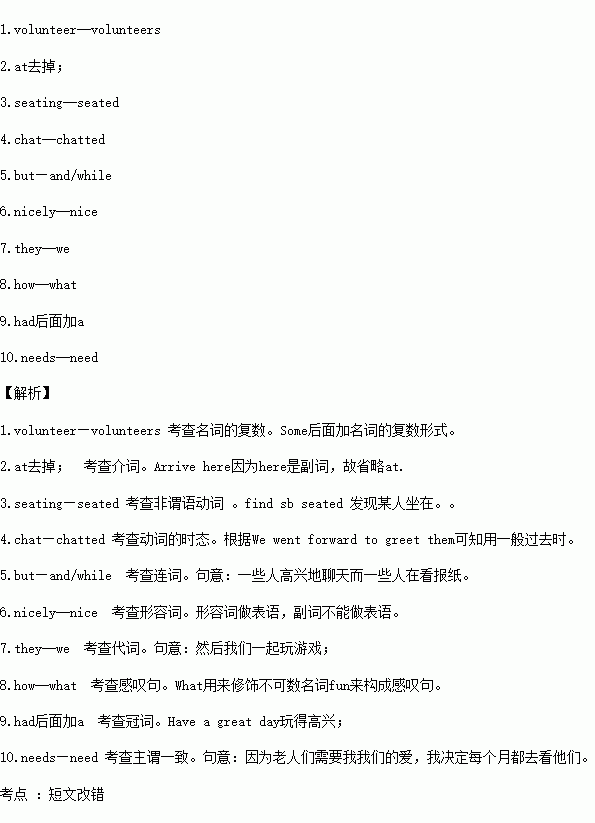题目内容
短文改错
假定英语课上老师要求同桌之间交换修改作文,请你修改你同桌写韵以下作文。文中共有10处语言错误,每句中最多有两处。每处错误仅涉及一个单词的增加、删除或修改。
增加:在缺词处加一个漏字符号( ),并在其下面写出该加的词。
),并在其下面写出该加的词。
删除:把多余的词用斜线(\)划掉。
修改:在错的词下画一横线,并在该词下面写出修改后的词。
注意:1.每处错误及其修改均仅限一词: .
2.只允许修改10处,多者(从第11处起)不计分。
Last weekend, I went to the nursing house with some volunteer to visit the elderly. On arriving at there, we found some old people seating in the yard, expecting us. We went forward to greet them. Some of us chat with them happily, but others read newspapers for them. The scene looked so nicely. At 10100, we put on performances, like singing and dancing. Then they played games together! How great fun it was!
I had great day in the nursing house that day. As the elderly needs our love and care, I decide to visit them every month.
练习册系列答案
相关题目

